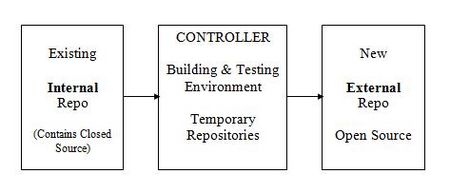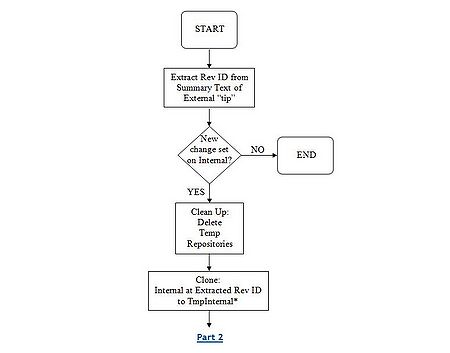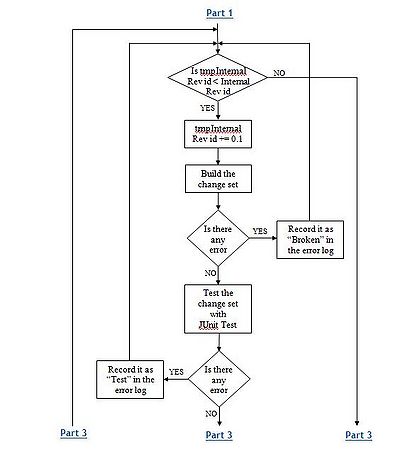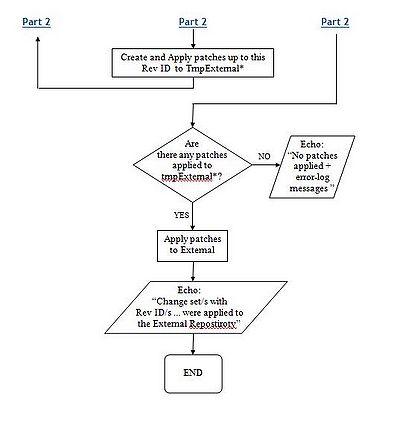Difference between revisions of "Continuous Integration/proposal"
(→Part 1 – Checking for new Change Sets on the Internal Repository) |
|||
| Line 1: | Line 1: | ||
==Automating The Synchronization of NexJ Server Express External Repository(Oct 6, 2010)== | ==Automating The Synchronization of NexJ Server Express External Repository(Oct 6, 2010)== | ||
| + | The solution that is proposed contains three main tasks: | ||
| + | |||
| + | 1. Checking for new Change Sets on the Internal Repository | ||
| + | |||
| + | 2. Building and Unit Testing each Change Set | ||
| + | |||
| + | 3. Creating a patch from a Change Set and applying it to the External Repository<br/> | ||
| + | [[ Image: controller.jpg | 450px ]]<br/> | ||
===Part 1 – Checking for new Change Sets on the Internal Repository=== | ===Part 1 – Checking for new Change Sets on the Internal Repository=== | ||
Revision as of 22:13, 8 April 2011
Contents
Automating The Synchronization of NexJ Server Express External Repository(Oct 6, 2010)
The solution that is proposed contains three main tasks:
1. Checking for new Change Sets on the Internal Repository
2. Building and Unit Testing each Change Set
3. Creating a patch from a Change Set and applying it to the External Repository

Part 1 – Checking for new Change Sets on the Internal Repository
At a scheduled time, a process will run that will compare the current Revision ID of the External Repository to that in the Internal Repository. If there is a new revision/s in the Internal Repository, then these changes will be pulled to the Controller.

Part 2 – Building and Unit Testing Each Change Set
Each change set Pulled from the Internal Repository is built on the Controller using the “build” target in the Ant script and after a successful build is tested with JUnit Tests.

Part 3 – Applying a Change Set to the External Repository
A patch will be created only after a change set is built and tested successfully. This patch will then be applied to the External Repository.
